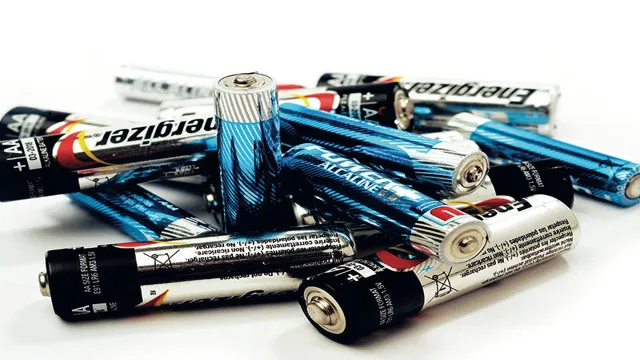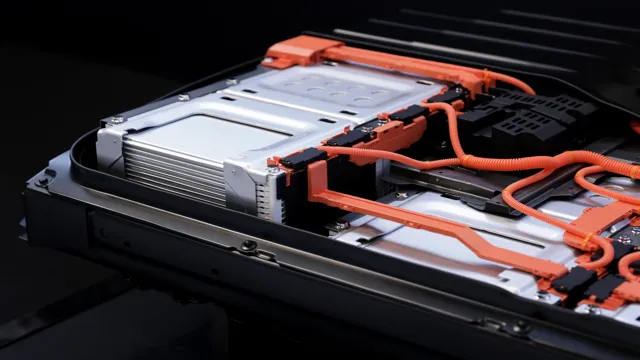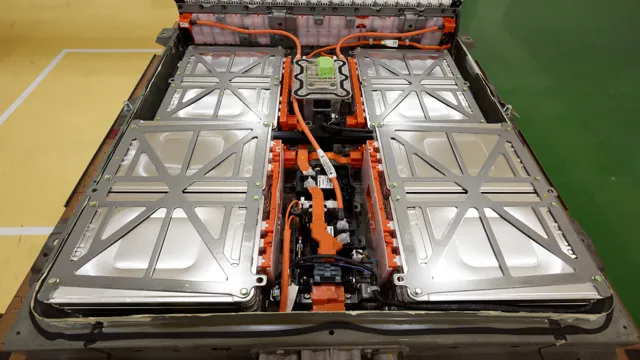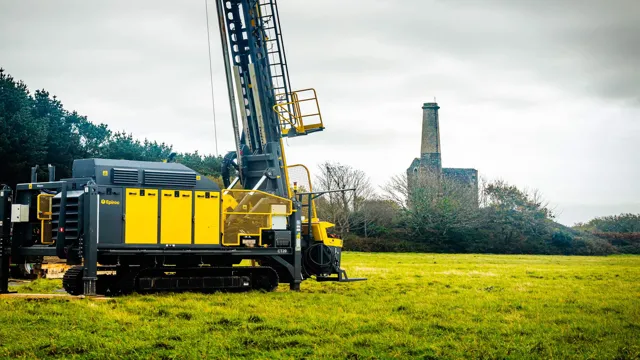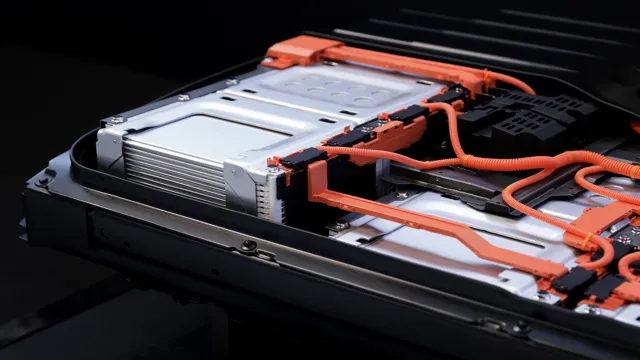Don’t Let Your Battery Waste: The Impact of Battery Disposal on Electric Cars
Electric cars are supposed to represent the future of transportation, a greener and more sustainable alternative to traditional gasoline-powered vehicles. However, one major drawback that often goes overlooked is the issue of battery waste. As electric cars become more popular and more of them hit the roads, the question of what to do with their batteries once they reach the end of their lifespan becomes increasingly crucial.
The average electric car battery only lasts around 8 to 10 years, and that’s assuming it’s used under optimal conditions. That means that in just a few short years, there is going to be a massive influx of potentially hazardous waste material that will need to be dealt with in an environmentally responsible manner. In this blog, we’ll take a closer look at the issue of battery waste in electric cars and explore some potential solutions to this looming problem.
The Problem
Battery waste from electric cars has become a growing concern in recent times. With the rise of electric vehicles, there is a growing need for batteries to power them. Unfortunately, the production and disposal of these batteries are not always environmentally friendly.
Electric car batteries often contain toxic chemicals, which can harm the environment if they are not disposed of properly. Additionally, the process of mining the minerals used to make these batteries can have a negative impact on the surrounding ecosystem. If battery waste from electric cars is not adequately addressed, it could lead to a significant environmental crisis.
Sustainable solutions, such as recycling and using more eco-friendly materials in battery production, need to be implemented to mitigate the problem.
Growing Concerns Over Battery Waste Impact
As technology continues to advance, the use of batteries has become increasingly prevalent in our everyday lives. However, an unintended consequence of this trend is the growing problem of battery waste impact. Not only are batteries difficult to dispose of, but they can also release harmful chemicals into the environment if not handled properly.
This is a major concern as the amount of electronic waste generated around the world continues to rise, with batteries contributing significantly to the problem. Governments and businesses must engage in more sustainable practices to minimize the impact of this waste on the environment. By reducing waste, utilizing reusable or recyclable materials, and implementing responsible disposal methods, we can help mitigate the severe impact that battery waste has on our planet.
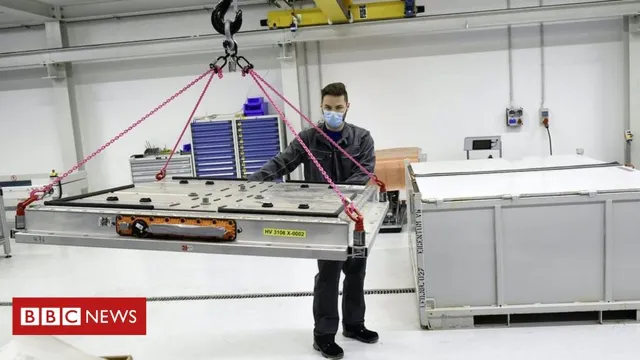
Waste Management and Recycling Efforts
Waste management and recycling efforts have become a crucial concern in modern society due to the ever-increasing amount of waste materials. The problem is twofold; firstly, the amount of waste produced is growing, and secondly, the disposal systems are inadequate. As a result, the amount of litter, as well as pollution, is increasing across the globe.
With the constant growth of the population, the amount of waste produced is only getting higher. Additionally, the lack of proper waste management gets in the way of sustainable development. If this issue is not dealt with sustainably, the planet is headed towards a disaster of unprecedented proportions.
Hence, it becomes imperative to put the necessary efforts and resources to re-use, reduce, and recycle waste materials in sustainable ways. By recycling, we can reduce its impact on the environment. Recycling helps reduce greenhouse gas emissions, saves energy and conserves natural resources.
The Causes
One of the main challenges with electric cars is the issue of battery waste. As more and more people switch to electric vehicles, the demand for batteries increases, leading to an increase in the number of batteries that need to be disposed of. These batteries contain hazardous materials that can leak into the soil and water, causing environmental damage.
The production of these batteries also requires significant amounts of energy and resources, further contributing to the environmental impact. However, efforts are being made to address this issue, such as implementing recycling programs and developing more sustainable battery technologies. As consumers, we can also play a role by properly disposing of our old batteries and choosing vehicles that use more sustainable battery options.
With these actions, we can help reduce the impact of battery waste on our environment.
Short Battery Lifespan and Recycling Restrictions
Short battery lifespan and recycling restrictions are major concerns in the technology industry. One of the main causes of short battery lifespan is the constant use of power-hungry apps and features on smartphones and other electronic devices. While manufacturers try to improve battery technology, the increasing demand for battery power puts a strain on batteries.
On the other hand, recycling restrictions are often caused by the lack of proper recycling infrastructures, regulatory policies, and accessibility to proper recycling facilities. Additionally, batteries contain hazardous materials such as cadmium, lead, and mercury that are harmful to the environment and require special treatment. Both issues can have a significant impact on the environment and human health, making it essential to take proper measures to address them.
Material Composition and Rare Minerals Extraction
One of the biggest causes of the material composition and rare minerals extraction problem is the ever-increasing demand for electronic devices. As technology advances and people become more reliant on electronic devices like smartphones, laptops, and tablets, the need for the materials used to construct these devices rises. This, in turn, leads to increased mining and extraction of rare minerals from the earth, which can have a devastating impact on the environment, wildlife, and surrounding communities.
Additionally, the process of extracting these materials requires a large amount of energy, which often comes from non-renewable sources like coal and oil, further contributing to greenhouse gas emissions and climate change. As consumers, we can take steps to minimize our impact by choosing to recycle our devices, purchasing from companies with environmentally conscious practices, and supporting sustainable materials and technology development.
The Solutions
When it comes to electric cars, battery waste is a growing concern that needs to be addressed. Fortunately, there are solutions on the horizon. For example, some companies are working on developing recycling technologies that can recover up to 95% of materials found in used batteries.
Additionally, battery swapping stations are emerging that allow drivers to exchange their used batteries for fully charged ones, reducing the need to dispose of old batteries. Another potential solution is to repurpose used EV batteries for energy storage in homes and businesses, providing an additional use before recycling. While these solutions are still in their early stages, they offer hope for reducing the environmental impact of electric cars and ensuring that all resources are utilized efficiently.
By committing to sustainable practices, we can create a cleaner, greener future for generations to come.
Innovative Recycling Technologies
Recycling technologies have advanced significantly in recent years, providing innovative solutions for dealing with waste. One such solution is called pyrolysis – a process that uses heat to break down materials into their constituent parts for recycling purposes. This method is particularly useful for dealing with non-biodegradable materials such as plastic, which can take hundreds of years to decompose.
Another interesting technology is known as plasma gasification, which essentially vaporizes waste at extremely high temperatures, converting it into a gas that can be used for energy production. While these may sound like futuristic concepts, they are already being tested and implemented in various parts of the world. These innovative recycling technologies offer a promising future for cleaning up our environment and reducing our dependence on non-renewable resources.
Battery Disposal Regulations and Extended Producer Responsibility
One solution to the battery disposal problem is Extended Producer Responsibility (EPR). EPR makes battery manufacturers responsible for the end-of-life management of batteries they produce. This means that manufacturers must design their batteries for easier recycling, implement collection systems, and provide funding for recycling and disposal programs.
By implementing EPR, manufacturers have an incentive to design batteries that are easier and cheaper to recycle, which reduces the environmental impact of batteries. In addition, EPR shifts the economic burden of disposal from taxpayers to manufacturers, making it fairer for everyone. It is important for consumers to dispose of their batteries properly by taking them to drop-off locations or recycling centers to further support this solution.
The Future Outlook
Although electric cars are an effective solution to decrease carbon emissions, battery waste has become a concern for many. As the usage of electric cars increases, a significant amount of battery waste is expected to accumulate. However, the future outlook appears hopeful as technology continues to improve.
Research is currently being conducted to develop better methods of recycling batteries, which could greatly reduce the amount of waste produced. Many companies are also exploring new methods of repurposing old batteries, such as using them for energy storage solutions. With advancements in technology and a focus on sustainability, the future of electric cars looks promising in terms of reducing battery waste.
Investment in Sustainable Battery Production and Recycling
As awareness about climate change and sustainability grows globally, investment in sustainable battery production and recycling is set to soar. The future outlook looks promising as more companies realize the importance of adopting eco-friendly practices in the production and disposal of batteries. This will help reduce environmental damage and promote responsible use of resources.
With the increased adoption of electric vehicles, demand for batteries will also continue to rise, making the shift towards sustainable battery production a necessity. Sustainable battery production involves reducing carbon emissions and water usage during production, as well as sourcing raw materials ethically. Recycling batteries at the end of their life cycle also contributes to minimizing waste and reducing the environmental impact.
Companies investing in sustainable battery production and recycling will not only improve their environmental credentials but also meet the demands of a growing market that values sustainability.
Conclusion
In conclusion, when it comes to battery waste in electric cars, we must remember that it’s not just about the end of the battery’s life cycle but the entire life cycle itself. While electric cars are certainly better for the environment than traditional gas-guzzling vehicles, we must also be mindful of the impact of the materials used in their production and disposal. Let’s not forget the 3Rs – reduce, reuse, and recycle – when it comes to our electric cars.
After all, we want to charge up our vehicles, not the landfills!”
FAQs
What is battery waste in electric cars?
Battery waste is the disposal of used or expired batteries from electric cars. These batteries can contain toxic materials that can harm the environment if not disposed of properly.
How can battery waste from electric cars be recycled?
Battery waste from electric cars can be recycled by extracting precious metals from the batteries and reusing them for manufacturing new batteries. Recycling also helps to reduce the environmental impact of battery waste.
Is it important to recycle battery waste from electric cars?
Yes, it is important to recycle battery waste from electric cars as these batteries contain toxic metals such as lead, cadmium, and lithium that can be harmful to the environment if not disposed of properly. Recycling helps to reduce our carbon footprint and protects the planet.
How can the battery life of electric cars be extended to reduce waste?
The battery life of electric cars can be extended by implementing proper charging habits and avoiding deep discharging of the battery. Regular maintenance and updates to the car’s software can also help to optimize the battery’s performance and prolong its life.
